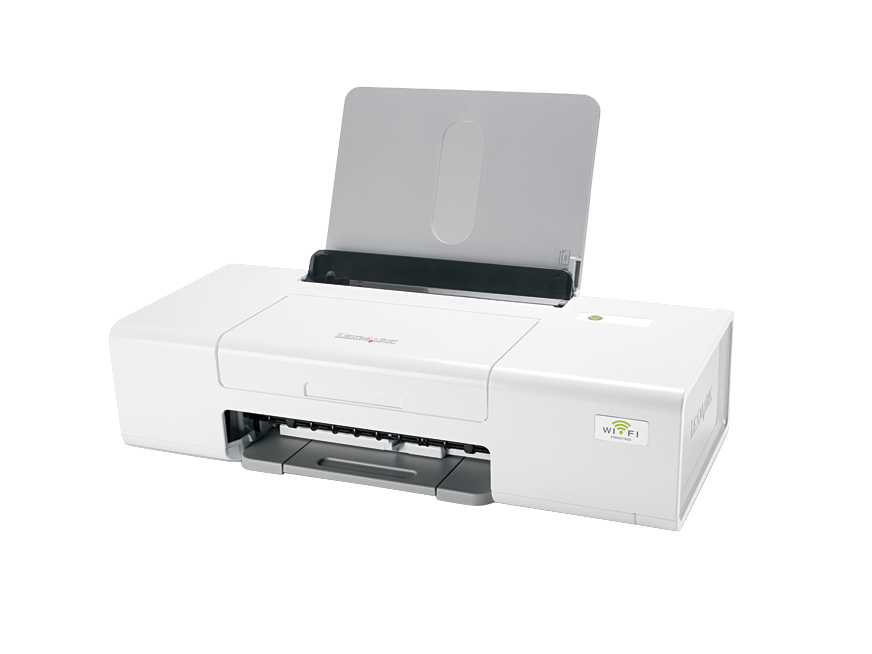TechRadar Verdict
Works quickly and works well, but there are some annoyances
Pros
- +
Uncomplicated setup
Good print quality and speed
Cons
- -
No ad-hoc connectivity
Flimsy paper tray
Why you can trust TechRadar
While many users are used to having their laptops connected to a wireless router, the most common way to add a printer is via a cable to the network. The Lexmark Z1420 (£50 inc. VAT) does away with this by incorporating 802.11g into the printer itself.
Setting up a printer is fairly straightforward these days, but Lexmark has made it even easier by supplying a walkthrough on the driver disc; it not only helps you get the machine up and running, but also handles the driver and Wi-Fi connection side of the installation at the same time.
The Wi-Fi antenna is on the rear of the unit with a connection indicator on the front, so you can see if you're in range of an Access Point.
This isn't a mobile product and is aimed at those who have a network already in place; you have to specify which wireless network you wish to use the printer in conjunction with. Sadly, there are no controls for an ad hoc connection for a single user, which would have been the best solution for the home user. In this instance, you'll be prompted to add a USB cable, which negates the use of opting for a wireless printer.
When it comes to the printer itself, it's a slimline unit, but is rather wide in order to incorporate the wireless chipset and antenna. The print quality is more than acceptable and with speeds of up to 24ppm black and 18ppm when printing colour, it's a quick machine to use for bulk printing.
On the downside, the paper feed tray is on the flimsy side and we found getting the paper to align correctly was cumbersome.
If you've got a wireless network set up in your home or small office and you wish to add a printer away from the main router, this is reasonable entry-level product. While Lexmark has tried to simplify the process, you'll find that it still takes a degree of experience to get it up and running. However, once working, you will find it an invaluable addition.
Sign up for breaking news, reviews, opinion, top tech deals, and more.
Tech.co.uk was the former name of TechRadar.com. Its staff were at the forefront of the digital publishing revolution, and spearheaded the move to bring consumer technology journalism to its natural home – online. Many of the current TechRadar staff started life a Tech.co.uk staff writer, covering everything from the emerging smartphone market to the evolving market of personal computers. Think of it as the building blocks of the TechRadar you love today.
